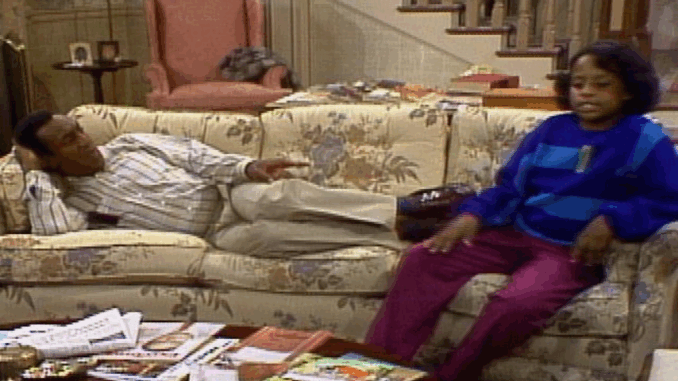
In the golden age of American television, few shows left a cultural imprint as deep and lasting as The Cosby Show. Premiering on NBC in 1984, this groundbreaking sitcom didn’t just top ratings charts — it redefined what was possible for Black representation in mainstream media, all while reshaping the family sitcom genre.
A New Kind of American Family
At the center of The Cosby Show was the Huxtable family — upper-middle-class, educated, and delightfully humorous. Led by Dr. Heathcliff Huxtable (Bill Cosby) and attorney Clair Huxtable (Phylicia Rashad), the show portrayed a Black family that broke free from the stereotypes that had long dominated television. Their five children — Sondra, Denise, Theo, Vanessa, and Rudy — offered viewers a multigenerational lens into relatable family challenges, all served with sharp wit and moral grounding.
This portrayal was revolutionary. At a time when most TV portrayals of African American families focused on hardship or one-dimensional tropes, The Cosby Show showed stability, love, and success. It wasn’t just entertainment — it was social commentary, subtly reshaping perceptions across racial and economic lines.
Cultural Impact and Ratings Dominance
From 1985 to 1990, The Cosby Show consistently ranked as the No. 1 show in America. Its mass appeal crossed racial, cultural, and generational boundaries, drawing in millions of viewers each week. It is widely credited with reviving NBC and paving the way for a wave of African American-centered sitcoms such as A Different World, Family Matters, and The Fresh Prince of Bel-Air.
Its influence even extended into education. Numerous studies found that the show inspired higher enrollment rates at historically Black colleges and universities (HBCUs), thanks in part to the show’s proud references to institutions like Howard University and Spelman College.
A Complicated Legacy
In later years, the legacy of The Cosby Show has become complicated by the legal controversies surrounding Bill Cosby himself. While these events have understandably cast a shadow over the show’s legacy, many critics and fans alike continue to distinguish between the cultural significance of the show and the actions of its lead actor.
The series remains a powerful example of how media can challenge stereotypes, uplift communities, and influence generations. Its role in changing the face of American television is undeniable.
Conclusion
The Cosby Show will always be remembered as a cultural milestone — a sitcom that dared to be different and succeeded. Its impact on representation, family values, and storytelling helped define an era and opened doors for future generations of creators and audiences alike.